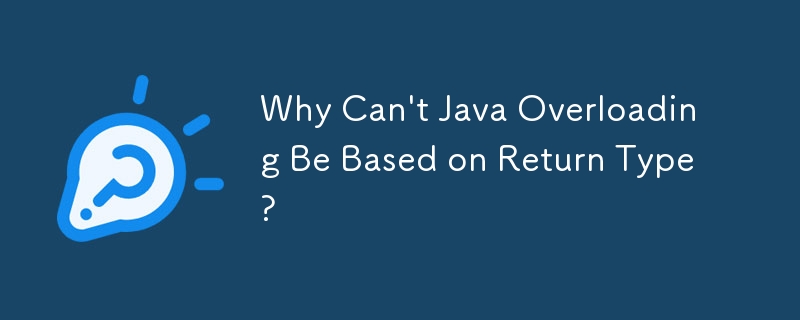

Return Type Overloading in Java: An Incompatibility
Despite the multifaceted abilities of Java, the language poses a restriction when it comes to overloading functions solely by altering the return type. This has raised a common question: why does Java prohibit such overloading?
The answer lies in the fundamental nature of overloading. Overloading allows multiple functions with the same name to coexist within a class, distinguished by their parameter signatures. However, when return types are also used for differentiation, ambiguity arises. Consider the following code:
<code class="java">public int foo() {...}
public float foo() {...}</code>If both foo methods were allowed to coexist, the compiler would face a dilemma when encountering the statement foo(). With the return type alone, it would be impossible to determine which function to invoke. This ambiguity is the primary reason why Java does not permit overloading based on return type.
This limitation extends to C , another popular programming language. In both Java and C , the return type plays an essential role in the function signature, serving as the endpoint of the function's behavior. Altering it would directly impact the semantics of the function, rendering the concept of overloading untenable.
Despite ongoing advancements in programming language design, no concrete plans exist to introduce such overloading in Java or C . The current approach maintains clarity and discourages potential misunderstandings during code execution.
The above is the detailed content of Why Can\'t Java Overloading Be Based on Return Type?. For more information, please follow other related articles on the PHP Chinese website!




